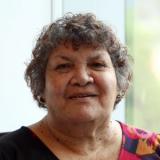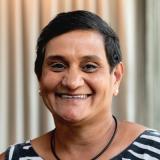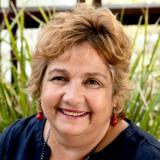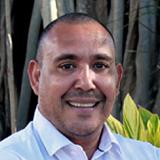The Australian Government is now in caretaker period. During this time, updates on this website will be published in accordance with the Guidance on Caretaker Conventions, until after the election.
National Health and Medical Research Council (NHMRC) has established an advisory committee to seek advice on Aboriginal and Torres Strait Islander health and health research issues.
The Principal Committee Indigenous Caucus (PCIC) is established as a working committee under Section 39 of the National Health and Medical Research Council Act 1992.
PCIC's functions are to:
- Provide advice to and support for the Member of Council with expertise in Aboriginal and Torres Strait Islander health needs and the Chief Executive Officer of NHMRC.
- Provide guidance and direction on achieving the commitments set out in Road Map 3: A strategic framework for improving Aboriginal and Torres Strait Islander health through research and the associated Action Plan 2021–2024 Triennium.
- Monitor progress against Road Map 3 and the Action Plan.
Membership of PCIC is comprised of Aboriginal and Torres Strait Islander members appointed to the Council of NHMRC and its Principal Committees, as well as a number of early career researchers. PCIC is chaired by Professor Yvonne Cadet-James.
Membership
The committee members for 2021–2024 triennium are below.

Chair,
Professor
Yvonne
Cadet-James
Professor Yvonne Cadet-James is a Gugu Badhun woman from the Valley of Lagoons in north Queensland. She is an Adjunct Professor at the Indigenous Education and Research Centre and the Office of the Provost at James Cook University. She is also the Research Coordinator at Apunipima Cape York Health Council, a community controlled health service based in Cairns.
An Indigenous health researcher, community leader and mentor, Professor Cadet-James has extensive experience in the field of health and education with a background as a registered nurse and midwife followed by an academic teaching and research career in health sciences. Her research interests include community-based models to address tobacco, alcohol and cannabis misuse and maternal and child health.
Her work has a strong focus on community empowerment and she seeks to strengthen the capacity of Indigenous researchers, organisations and communities through teaching, acting in an advisory and mentor role, providing master classes and workshops specifically designed to support Indigenous groups as they set and take control of their own research agendas.
Professor Cadet-James has previously served on the Australian Health Ethics Committee (2018–2021) and Health Translation Advisory Committee (2015–2018). She has also been a member of the NHMRC Principal Committee Indigenous Caucus since 2015.
Professor Cadet-James was presented with the Lowitja Institute Lifetime Achievement Award in 2019 for her contribution to Indigenous health research and her commitment to empowering communities to fight against and overcome issues impacting on their people. She is a Fellow of the Australian College of Nursing.
Declaration
- Provision of fee for service and gratis consultancies on behalf of institutional affiliations
- Recipient of, and likely future applicant to, NHMRC for research funding, including salary support for self and/or team
- Institutional affiliations as noted in profile

Professor
Yvette
Roe
Member-in-Common with Research Committee
Professor Yvette Roe is a proud Njikena Jawuru woman who has dedicated over 30 years working with, and for, First Nations people. She is a leading First Nations researcher and undertakes research that is co-designed with communities, and service providers, and aims to dismantle systemic structural inequities to improve health equity. She is the Professor in Indigenous Health and Co-director of the Molly Wardaguga Research Centre, at the Charles Darwin University in Darwin.
Her research is focused on ensuring maternal and infant services are informed by an Indigenous epistemology and ontology and mother-child focused. It is co-designed with families, communities, and service providers, and aims to improve health for First Nations Australians; with a specific focus on the first 2000 days.
Professor Roe has a proven record of engaging with researchers and stakeholders in CI and AI roles of numerous grants. Professor Roe has established a research team to support her work and uses methodologies to privilege First Nations knowledges that is co-designed with communities and service providers. Professor Roe has collaborative projects across Australia, Canada, and Aotearoa.
In 2018–2021 Professor Roe was a member of both the NHMRC’s Research Committee and Principal Committee Indigenous Caucus (PCIC). She has served as a member of PCIC since 2015 and has significantly contributed to NHMRC’s work for improving Aboriginal and Torres Strait Islander health through research.
Declaration
- Recipient of, and likely future applicant to, NHMRC for research funding, including salary support for self and/or team
- Institutional affiliations as noted in profile.

Associate Professor
Alwin
Chong
Member-in-Common with the Australian Health Ethics Committee
Associate Professor Alwin Chong is a Wakamin man from Far North Queensland. He is Director of Arney Chong Consulting and Positive Futures Research. Prior to this, Associate Professor Chong was an Ethics Consultant to The Lowitja Institute, also serving as Program Leader for the Cooperative Research Centre for Aboriginal and Torres Strait Islander Health Program 2 - Healthy Communities and Settings. He was also Director of the Positive Futures Research Collaboration at the University of South Australia.
A respected Aboriginal leader and advocate for Aboriginal health research that is culturally equitable. Associate Professor Chong has over 35 years of research experience, including as an Associate Professor at the Australian Centre for Child Protection and the Yaitya Purruna Indigenous Health Unit, both at University of Adelaide.
A former member of the South Australian Department of the Health’s Human Research Ethics Committee and the Royal District Nursing Service Ethics Committee, Associate Professor Chong's areas of expertise closely align with his commitment to Indigenous health and child protection. He also formally served on NHMRC's HoMER Aboriginal Sub-Committee and was on the South Australian Health and Medical Advisory Council.
Declaration
- Provision of fee for service and gratis consultancies on behalf of institutional affiliations
- Recipient of, and likely future applicant to, NHMRC for research funding, including salary support for team
- Institutional affiliations as noted in profile.

Professor
Gail
Garvey
Member-in-Common with the Health Research Impact Committee
Professor Gail Garvey is a Goori woman from NSW and is Professor of Indigenous Health Research and Senior Principal Research Fellow at The University of Queensland.
Professor Garvey has over 30 years of leadership and impact in Aboriginal health research, education and capacity building. She has established an extensive and targeted research program focused on cancer and the wellbeing of Australia's First Nations people.
Her research program on Australia's First Nations Peoples and cancer, health services research and psychosocial aspects of cancer care are internationally recognised. Professor Garvey currently leads a National Health and Medical Research Council Centre of Research Excellence in targeted approaches to improve cancer services for Indigenous Australians. She has extensive experience in translating research into policy and practice.
Professor Garvey's emerging research focus on understanding and measuring wellbeing from the perspectives of Aboriginal and Torres Strait Islander people is gaining increasing attention. Her collaborative work fills an important gap in the availability of valid and culturally-robust measures to inform clinical and policy decision making to improve the health and wellbeing of Aboriginal and Torres Strait Islander people.
Declaration
- Recipient of, and likely future applicant to, NHMRC for research funding, including salary support for self and/or team
- Institutional affiliations as noted in profile.

Professor
Catherine
Chamberlain
Member-in-Common with Women in Health Science Committee
Professor Catherine Chamberlain is a Palawa woman of the Trawlwoolway clan (Tasmania). She is a registered midwife and public health researcher (PhD, MPH, MSc Public Health Practice, Graduate Certificates in Health Service Management and Indigenous Research and Leadership). She has over 25 years' experience in the health sector, including leadership positions within academic institutions, government and health services.
Since graduating from her PhD in 2015, Professor Chamberlain has established a highly productive program of research to improve health for children and families, which has been recognised in an extensive list of prestigious awards. Her research has generated evidence on effective strategies to support women to stop smoking in pregnancy, which has informed international and national guidelines. She has identified critical gaps in care for Aboriginal and Torres Strait Islander women experiencing diabetes in pregnancy and worked with communities to develop acceptable and feasible strategies to address these gaps. She currently leads a large multi-disciplinary multi-jurisdictional project to develop, implement and evaluate perinatal strategies to support Aboriginal and Torres Strait Islander parents experiencing complex trauma.
She holds an NHMRC Career Development Fellow (2019-2022), and her postdoctoral research program aims to improve Indigenous health equity by developing strengths-based family-focussed strategies in pregnancy, birth and early childhood. In 2019, she was awarded the prestigious 2019 Lowitja Institute Research Leadership award.
She is currently a member for the Victorian Aboriginal maternal and child health initiative steering group, NHMRC Advisory Group on the Synthesis and Translation of Research Evidence (SToRE), NHMRC Centre of Research Excellence in Stillbirth Indigenous Advisory Group, International GRADE working group and PSANZ Health Equity group.
Declaration
- Provision of fee for service and gratis consultancies on behalf of institutional affiliations
- Recipient of, and likely future applicant to, NHMRC for research funding, including salary support for self and/or team
- Institutional affiliations as noted in profile.

Dr
Sean
Taylor
Early Career Researcher
Member-in-common with Consumer and Community Advisory Group
Dr Sean Taylor is descendent of the Dauareb Tribe, one of the 8 tribes of Mer Island in the Eastern Torres Strait region.
Sean has over 25 years of clinical experience in Aboriginal and Torres Strait Islander Health working at different levels across Australia in range of academic and research interest, as well as clinical practice. Sean currently holds a Bachelor of Nursing Science, Graduate Certificate in Health: Diabetes Management & Education, Bachelor of Health Sciences (Honours) and a Doctor of Public Health.
Sean currently holds joint appointments as NT Health Executive Director Aboriginal Health and Diversity and Menzies School of Health Research Deputy Director Indigenous Leadership and Engagement based in Darwin and an Adjunct Associate Professor, Public Health and Tropical Medicine with James Cook University.
Sean is also currently a member of the NHMRC Consumer and Community Advisory Working Group, and also a member of the National Partnering with Consumers Committee. Sean is the current Chair of NT Health, Top End, Big River and East Arnhem Partnering with Consumers Committee, Communicating for Safety Committee, Aboriginal Health Committee, Aboriginal Health Partnership Committee, LGBTQIA+ Health Committee, Multicultural Committee and Chair of the Reconciliation Action Plan Committee with Menzies School of Health Research and NT Health, Top End, Big River and East Arnhem. Sean is also the chair Top End Pride, President Elect Rotary Darwin Sunrise and a co-investigator on multiple successful nationally competitive grants.
Declaration
- Provision of fee for service and gratis consultancies on behalf of institutional affiliations
- Recipient of, and likely future applicant to, NHMRC for research funding, including salary support for self and/or team
- Institutional affiliations as noted in profile.

Associate Professor
Maree
Toombs
Early Career Researcher
Associate Professor Maree Toombs is an Aboriginal woman with cultural linage to the Kooma people of Western Queensland and Euahlayi People of North Western NSW. The Carbal Institute of Aboriginal and Torres Strait Islander Health Research (CIHR) is led by Associate Professor Toombs. She is the University of Queensland's Director of Indigenous Health, Rural Clinical School, and Associate Dean (Indigenous Engagement), Faculty of Medicine. She also holds a QLD Children's Hospital Foundation Fellowship and leads three National Health and Medical Research Council grants.
Her expertise is in mental health, suicide intervention amongst Indigenous Australians and exploring the interface between Indigenous and Western research methodologies. her success is based on co-designed high impact research led by the priorities identified by participating communities.
Associate Professor Toombs has contributed to >$33.1M of tier one and other grants and committed to over 10 years of service including active participation on NHMRC panels, boards, committees and >90+ National and International Indigenous partnerships/ collaborations. Her publications have been used to influence policy in Australia and the United Kingdom. With 20 years' experience in teaching and developing curriculum with an Indigenous perspective both in education and health, she has improved the way people culturally work with Indigenous Australians in urban, rural and remote areas.
As a recipient of a Churchill Fellowship (2011), and a published author, her research has also focused on improving retention rates for Indigenous students at Universities in Canada. Working closely with the Aboriginal and Torres Strait Islander Studies Unit and Poche Centre for Indigenous Health, she will assist the Faculty of Medicine in implementing their Reconciliation Action Plan as well as ensuring the continued support of Indigenous students at UQ.
Declaration
- Provision of fee for service and gratis consultancies on behalf of institutional affiliations
- Recipient of, and likely future applicant to, NHMRC for research funding, including salary support for self and/or team
- Institutional affiliations as noted in profile

Dr
Kalinda
Griffiths
Early Career Researcher
Dr Kalinda Griffiths is an early career Scientia Lecturer at the Centre for Big Data Research at UNSW and holds honorary positions at Menzies School of Health Research and the University of Melbourne. Dr Griffiths is an epidemiologist who has worked in the research sector in a number of roles for over 20 years. Her interest is in empirically addressing complex health disparities in populations through existing data. Her research currently addresses issues of quality and the utilisation of data pertaining to Aboriginal and Torres Strait Islander people. Her areas of focus include the measurement of health disparities, with a particular focus on cancer and Indigenous Data Governance.
Dr Griffiths is chief investigator on several nationally competitive grants. She has been recognised with the following awards: 2020 - Health Promotion Association of Australia, Thinker in Residence; 2019 - Lowitja Institute for Aboriginal and Torres Strait Islander Health, Emerging Researcher Award; 2018 - Science and Technology Australia, 2019-2020 Superstar
Declaration
- Provision of fee for service and gratis consultancies on behalf of institutional affiliations
- Recipient of, and likely future applicant to, NHMRC for research funding, including salary support for self and/or team
- Institutional affiliations as noted in profile.